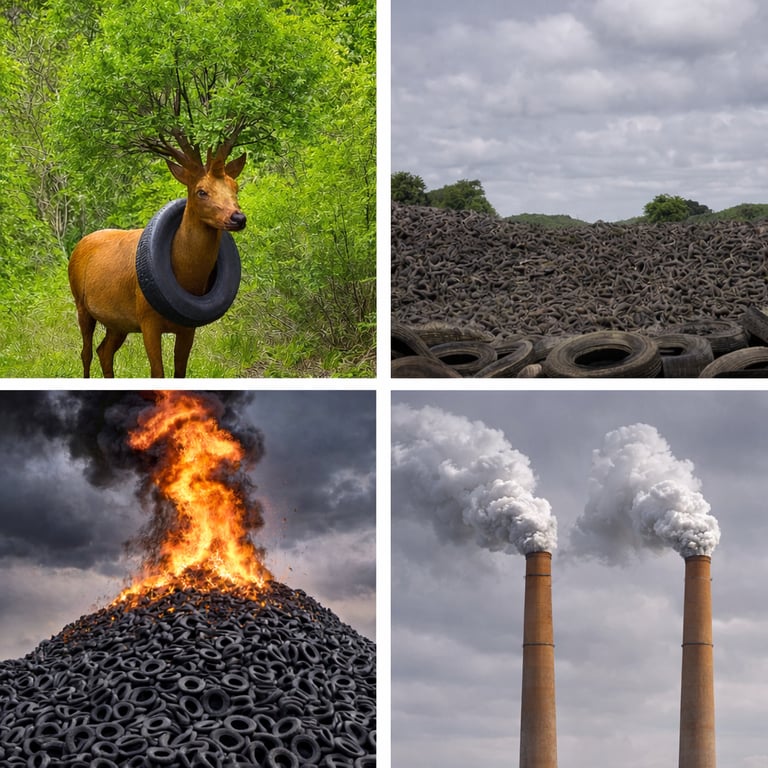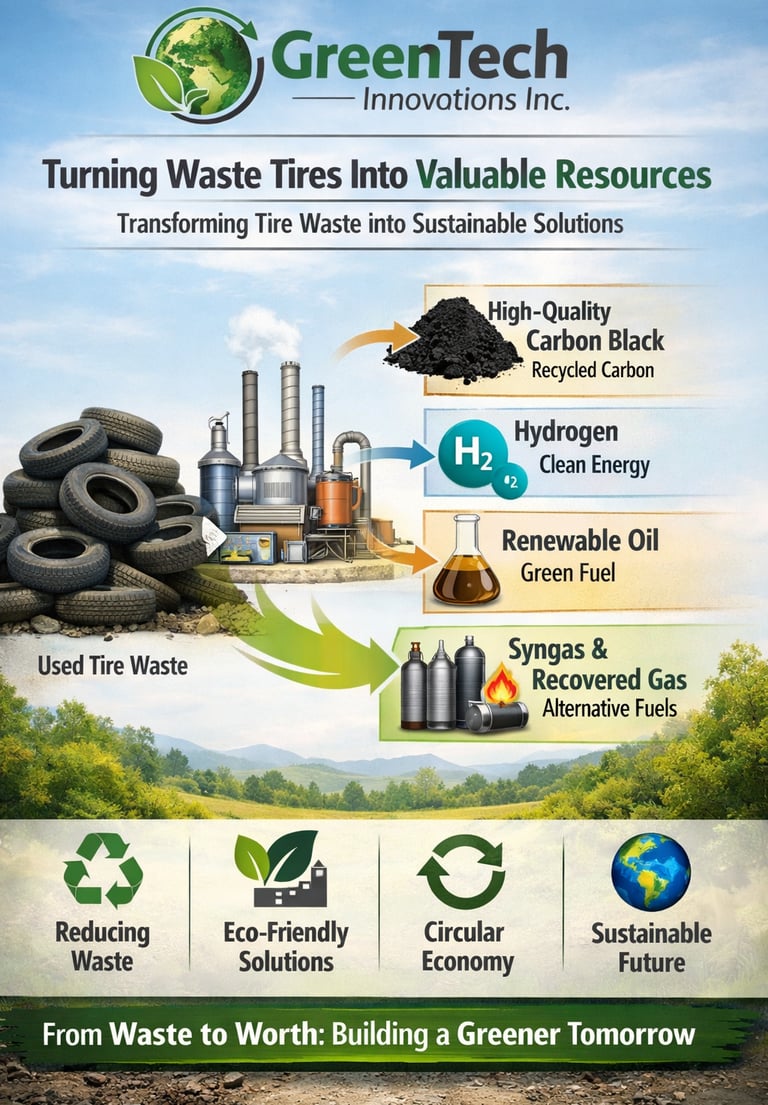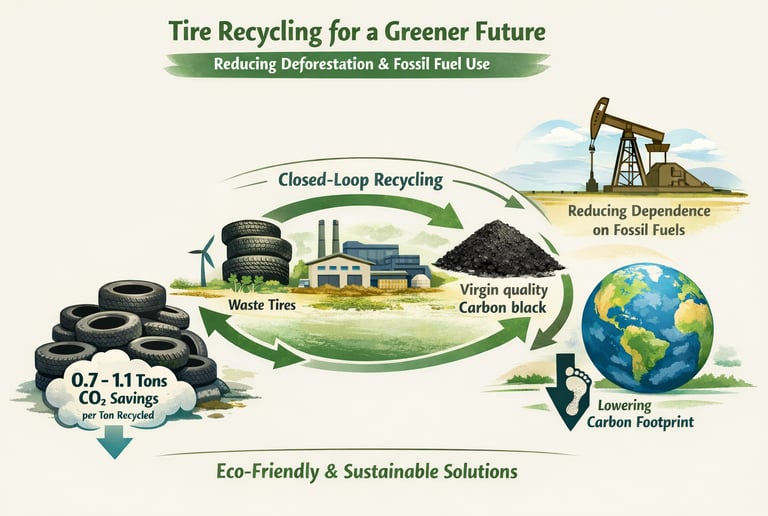
Sustainability & Greentech
Problem
Annually, over 20 million tonnes of tires are discarded globally, posing a significant environmental threat.
1- Environmental Pollution in Landfills: Discarding end-of-life tires in landfills poses a significant environmental threat, primarily due to their slow decomposition and the substantial space they occupy and secondary the risk of fire hazard due to accumolated tires in landfills.
2- CO2 Emissions and Toxic Fumes from Incineration: Incinerating tires, frequently done in cement industries for energy recovery, releases substantial CO2 emissions, estimated at nearly 10 million metric tons annually, along with potentially harmful fumes.
3- Resource Waste: Tires contain valuable materials that are not fully utilized when disposed of, representing a loss of resources.




Solution
Greentech Innovations Inc. has successfully transformed the significant challenge of used tire waste into an environmentally conscious opportunity. With the capability to process used tires, GTI converts them into valuable secondary materials. These include premium high-quality Carbon blacks, Hydrogen, Oil and Gases. These recycled products serve as sustainable alternatives, effectively substituting for virgin raw materials typically obtained from fossil fuels. This innovative approach by Greentech Innovations aligns with eco-friendly practices and contributes to a more sustainable and circular economy.


Impact
Tire recycling is vital for environmental conservation, reducing the necessity for deforestation and dependence on fossil fuels in rubber production. This sustainable approach results in impressive CO2 emission savings, ranging from 0.7 to 1.1 tones per ton of recycled tires compared to incineration. The closed-loop system transforms waste tires into carbon black, minimizing reliance on fossil raw materials and promoting a circular tire production model. Additionally, the process operates without external fossil fuel consumption, showcasing a commitment to eco-friendly practices and sustainable resource management, preventing pollution and reducing the overall carbon footprint.
